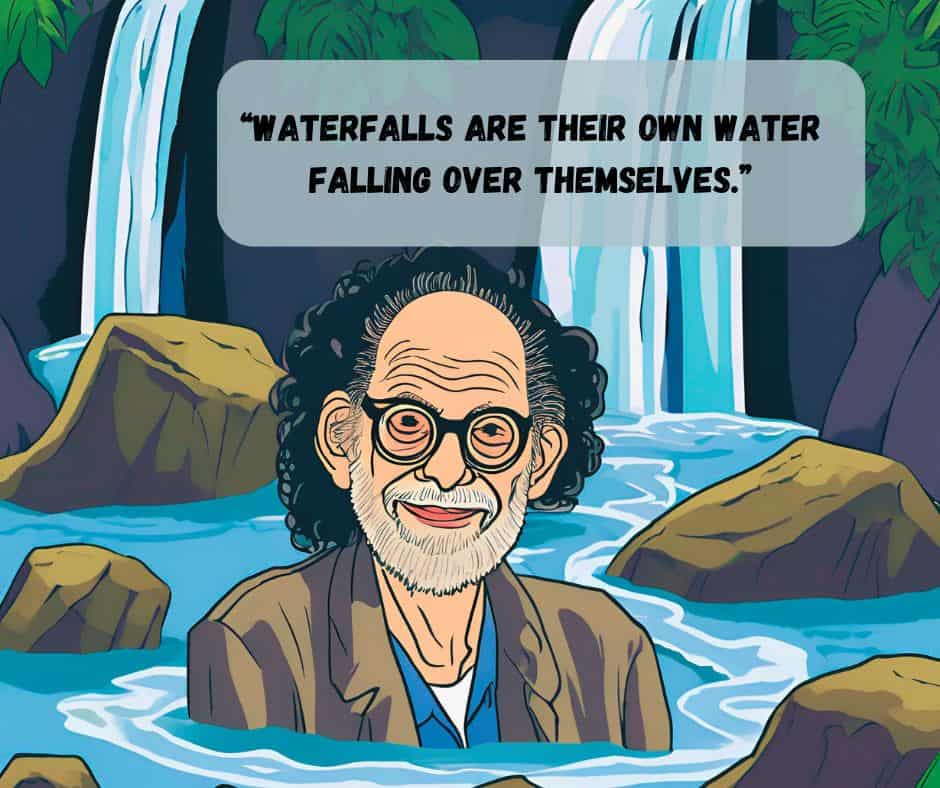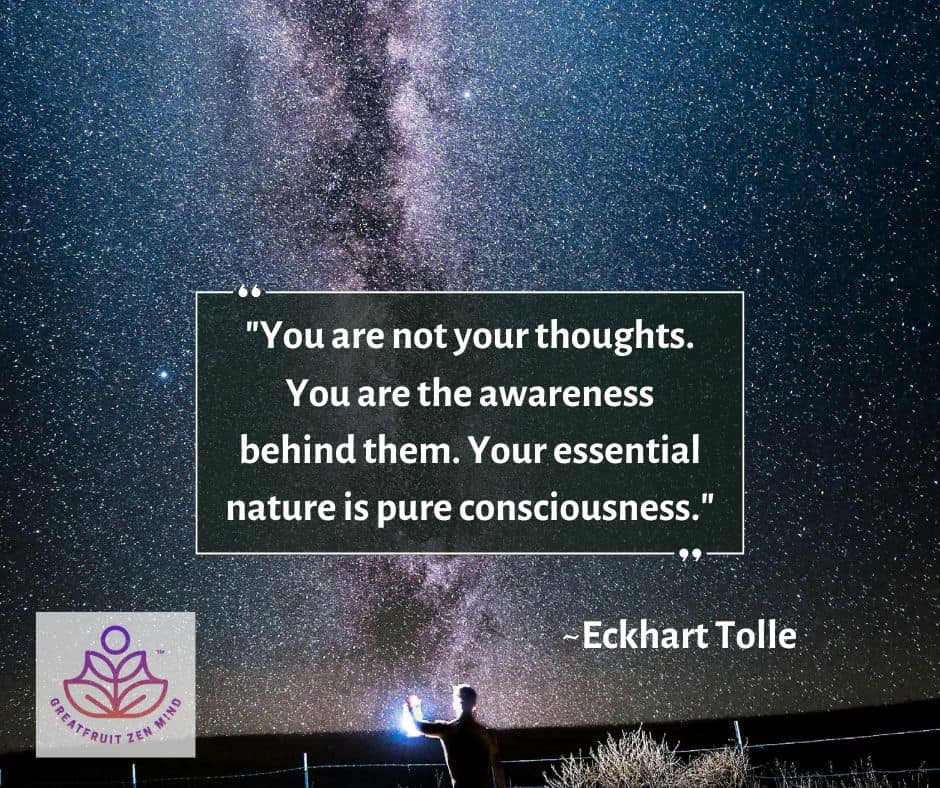Read time 4 minutes. Essential Nature is a stand alone article in our Who Am I series.
In earlier lessons, we explored self-inquiry and the danger of turning Who am I? into a mechanical mantra. Today, let us approach from another angle. Instead of repetition, let us consider the experience of being struck by a poetic line—a phrase that bypasses logic and opens something deeper. In that opening, we find a key distinction: the difference between mindlessly repeating and delicately holding.
This inquiry into essential nature will touch familiar themes: the limitations of language, the duality embedded in existence, and the paradoxes that arise when two truths coexist. In practice, we are invited to be at peace with that tension.
Understanding as a flow
I have said before that the gift of self-inquiry lies in its simplicity. Yet here I am about to complicate it further. This presents a paradox of its own: the effort to understand perfectly can itself become an act of letting go. Understanding, like awareness, is not static. It flows.
The next few lessons may feel more like poetry or art than philosophy. Let them wash over you. If meaning lands, wonderful. If not, no need to wrestle—let it go, and perhaps return later.
What is a waterfall?
Allen Ginsberg once wrote in Wichita Vortex Sutra: “Waterfalls are their own water falling over themselves.”
The plainness of the statement is almost comical, and yet it carries depth. Like Shakespeare’s best lines, its power lies not just in what it says but in how it says it. It turns the obvious inside out, forcing us to reconsider what we overlook. It reveals the dual nature of something familiar: both the mundane and the majestic.

The dualistic essence of essential nature
The word essence itself holds dual meanings. It can refer to the intrinsic, defining quality of something—its very core. Or it can serve more broadly, a summary or shorthand: “Essentially, what I’m saying is…”
This dual use points directly to the paradox of essential nature.
Take the neon City Light sign for the power company in my town. On one hand, it is perfectly literal—it is, in fact, a city light. On the other, it points toward something larger: the utility company and all it provides. Both meanings exist simultaneously.
Ginsberg’s line works the same way. A waterfall is literally water falling. But it also hints at something larger: motion as identity, action as essence. The waterfall is water, and it is falling, and in that continuous falling it lives its life.
Essential nature as oneness and identity
Here the paradox grows clearer. The more specifically we describe something, the more distinct and separate it becomes. Each detail reinforces its individuality, pulling it away from the oneness of creation. In the case of the self, the more tightly we define I, the more deeply we entrench ego.
And yet the opposite is also true. A waterfall is inseparably one with water, inseparably one with the cycle of rivers and rain. Its very individuality points back to its unity.
Two truths at once
This is the heart of duality: two truths coexisting. Ginsberg’s line, the neon sign, and our own identities all reveal the same lesson. Both literal and metaphorical truths are valid. Both individuality and unity are valid.
Zen often speaks of balance, the middle way. Here that balance is not compromise but expansion: holding paradox without resistance. To know essential nature is to know both specificity and wholeness at once.
Language and the manipulation of meaning
Perhaps along the way I have convinced you that Ginsberg’s line about waterfalls is really about self-inquiry, perhaps even that he intended it that way. This reveals another layer: the manipulative nature of language. Words bend perception, sometimes deliberately, sometimes by accident.
And so we circle back to the practice itself. If understanding is a flow, then our task is not to trap it with words but to hold it lightly—like a waterfall that is at once water, motion, identity, and unity.
In our next lesson, we will take this further by examining the limitations of language and how paradox invites us closer to truth.
Explore more:
Allen Ginsberg was a genuine American original and treasure. To discover more about this poem “Wichita Vortex Sutra,” as well as links to other information about the man and his works, visit this digest on The Allen Ginsberg Project.
–
Thanks for visiting Greatfruit Zen Mind.
We’re building something bigger than ourselves
and we want you to be a part of it.
🌀 From the GZM Archives – Polished, Preserved, Still Relevant


Leave a Reply